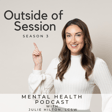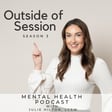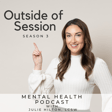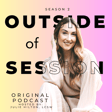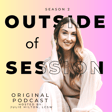
Inside the Mind: Unraveling OCD
Explore the world of OCD in this interview with therapist Stephanie Landrum. Gain expert insights, practical strategies, and a compassionate perspective on navigating life with obsessive-compulsive disorder. Whether you're personally affected or seeking understanding, join us for an impactful conversation on the journey into the complexities of OCD.
About today's guest:
Stephanie Landrum is a licensed professional counselor in the state of Georgia and a national certified counselor. She is the owner of Mind in Bloom Counseling in the Metro Atlanta area and has been practicing for the last 10 years. She specializes in work with clients ages 16-45 who struggle with anxiety, OCD, stress and burnout, life transitions, self-esteem and perfectionism.
Resources:
International OCD Foundation: https://iocdf.org/
Book recommendations: https://www.mindinbloomcounseling.com/resources/favorite-book-recommendations
Other media resources: https://www.mindinbloomcounseling.com/resources/ocd-and-anxiety-resources-media-resources
Postpartum Support International OCD Support Group: https://www.postpartum.net/get-help/psi-online-support-meetings/#perinata-ocd
Get in touch with Stephanie:
Website: www.mindinbloomcounseling.com
Instagram: @mindinbloomcounseling
